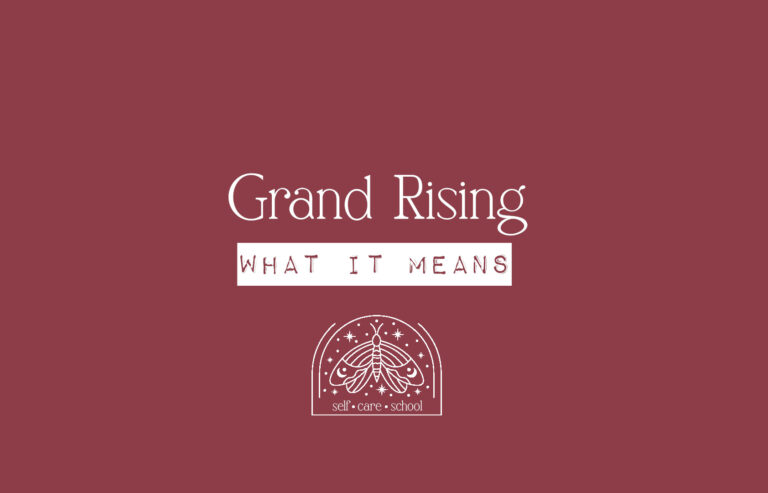Chop wood, carry water
“Chop wood, carry water” is a well-known Zen proverb. Its origins lie in the teachings and practices of Zen Buddhism. At its core, the saying emphasizes the value of mindfulness, consistency, and finding the sacred in the ordinary.

What is the meaning of “chop wood, carry water?”
Interpretations:
- Mindfulness in the Mundane: By focusing on the present moment, even during the simplest of tasks, one can achieve mindfulness. Chopping wood and carrying water, both essential daily chores in many older societies, represent any repetitive or routine task in our lives.
- Before and After Enlightenment: Another common interpretation, particularly found in Zen teachings, is the idea that before enlightenment, one chops wood and carries water, and after enlightenment, one still chops wood and carries water. This means that the nature of everyday life and tasks doesn’t change with personal enlightenment. What changes is our relationship with and understanding of these tasks.
- Consistency and Commitment: The repetition of these chores underscores the value of consistency. Spiritual and personal growth often come not from occasional grand gestures but from the daily, consistent commitment to one’s practice, whatever that might be.
- Finding Joy in Every Task: Instead of seeing tasks as mundane or as obstacles to happiness, the proverb teaches that there is fulfillment and purpose in every task, no matter how simple it seems.
The saying is especially relevant today, in an age of constant distraction, as a reminder of the value of being present in our tasks and finding depth in simplicity.
Self Care
“Chop wood, carry water” resonates deeply with the principles of self-care. Here’s how the proverb aligns with modern self-care concepts:
- Mindfulness and Presence: At its core, self-care is about being attuned to one’s needs, emotions, and well-being. The act of chopping wood and carrying water teaches us to be present in every moment, focusing entirely on the task at hand. This mindfulness is therapeutic, reducing anxiety and fostering self-awareness.
- Routine and Ritual: Self-care often involves routines that ground us, whether it’s a skincare regimen, meditation, or physical exercise. Just as chopping wood and carrying water were consistent tasks, daily self-care rituals provide stability and predictability amidst life’s chaos.
- Value in Simplicity: Self-care doesn’t always involve elaborate spa days or retreats. Sometimes, it’s as simple as taking a deep breath, enjoying a cup of tea, or going for a walk. The proverb reminds us that even the most mundane tasks can have profound implications for our well-being if approached with intention.
- Physical Engagement: Chopping wood and carrying water are inherently physical tasks. They ground the individual in their body, combining exertion with purpose. Physical self-care, whether through exercise, stretching, or simply being active, is crucial for both mental and physical health.
- Purpose and Intention: Doing something with a clear intention gives it value. In self-care, it’s not just about what you do, but how and why you do it. Intentional self-care ensures that the activities genuinely nurture and replenish rather than just serving as a temporary distraction.
- Resilience through Repetition: Consistent self-care builds resilience. Just as the repeated acts of chopping wood and carrying water sustain life, consistent self-care acts, even if they are small and simple, can provide sustained emotional, physical, and mental well-being over time.
In essence, “chop wood, carry water” embodies the essence of self-care: finding profound value in simple, intentional acts that nourish the body, mind, and soul. It’s a reminder that care doesn’t need to be complex; it just needs to be consistent and mindful.
Variations
Variations of the “chop wood, carry water” proverb or concepts that evoke similar themes exist across various cultures and philosophies. While the exact wording or the specific chores/tasks mentioned might differ, the underlying principles of mindfulness, consistency, and finding meaning in everyday life are prevalent. Here are some variations and related sayings:
- Do the Dishes, Fold the Laundry: In contemporary contexts, especially in urban settings, daily chores like washing dishes or folding laundry can take on a similar meditative quality when done with mindfulness.
- Before Enlightenment, Chop Wood, Carry Water. After Enlightenment, Chop Wood, Carry Water: This Zen saying emphasizes that the essence of daily life remains consistent regardless of personal enlightenment.
- Wash Your Bowl: Another Zen teaching, after receiving instruction, a monk is told to “wash your bowl” as a reminder to be present and find completeness in every action.
- The Journey is the Destination: While not a direct variation, this saying emphasizes the process over the outcome, similar to how chopping wood and carrying water is about the act itself rather than the end result.
- “Every day is a journey, and the journey itself is home.” – Matsuo Bashō, a famous Japanese poet, emphasizing the significance of daily life.
- Practice Makes Perfect: A Western idiom that aligns with the theme of consistency in daily tasks leading to mastery.
- “The miracle is not to walk on water. The miracle is to walk on the green earth, dwelling deeply in the present moment and feeling truly alive.” – Thich Nhat Hanh, Vietnamese Zen master, underscoring the miracle of everyday presence.
These variations and related sayings all circle back to the importance of finding depth, meaning, and mindfulness in our everyday actions, no matter how mundane they might seem at first glance.
The “chop wood, carry water” proverb is deeply rooted in Zen teachings, offering a multitude of insights. Here’s a deeper exploration of its facets and its resonance across disciplines.
1. Zen Philosophy:
- Moment-to-Moment: Zen emphasizes living in the moment. This proverb illustrates the idea of fully engaging in every task, finding the sacred in the ordinary, which is a cornerstone of Zen philosophy.
- Kinhin: It’s akin to the practice of “kinhin” or walking meditation, where every step and breath is an enactment of being present.
2. Psychology and Mental Health:
- Cognitive Benefits: Psychological studies support the mental health benefits of engaging in repetitive, mundane tasks. They can be meditative and help in alleviating anxiety and stress.
- Flow State: Psychologist Mihaly Csikszentmihalyi’s concept of “flow” parallels this proverb. When one is wholly absorbed in a task, a state of heightened focus and immersion, similar to meditation, occurs.
3. In Literature and Pop Culture:
- Writing and Arts: Artists and writers often speak of the mundane aspects of their craft— the consistent, day-to-day work—as being central to their creativity and success.
- Modern Narratives: Books like “The Way of the Peaceful Warrior” by Dan Millman echo similar themes, where ordinary actions are portals to deeper self-understanding.
4. In Business and Productivity:
- Consistency Over Intensity: In productivity circles, the idea of small, consistent actions leading to significant results over time is popular. James Clear’s “Atomic Habits” is a testament to this philosophy.
- Mindful Leadership: Business leaders are increasingly adopting mindfulness practices, recognizing that presence and engagement in every task, irrespective of its scale, fosters effectiveness and innovation.
5. Science and Biology:
- Neuroplasticity: The brain’s ability to reorganize and form new neural connections is enhanced by repeated engagement in activities. It underscores the biological basis of finding skill and mastery in repetition, as implied by the proverb.
Closing Thoughts:
“Chop wood, carry water” is a multifaceted adage, traversing through the corridors of spirituality, psychology, art, business, and science. It underscores a universal truth— that in the ordinary, in the everyday tasks and routines, lies the extraordinary. It invites a shift in perspective, a deeper engagement with the world, where every action, no matter how trivial it appears, is imbued with the potential for profound self-discovery and enlightenment.
Each swing of the axe and every carried bucket of water is a dance between the earthly and the ethereal, a step closer to the essence of existence.






